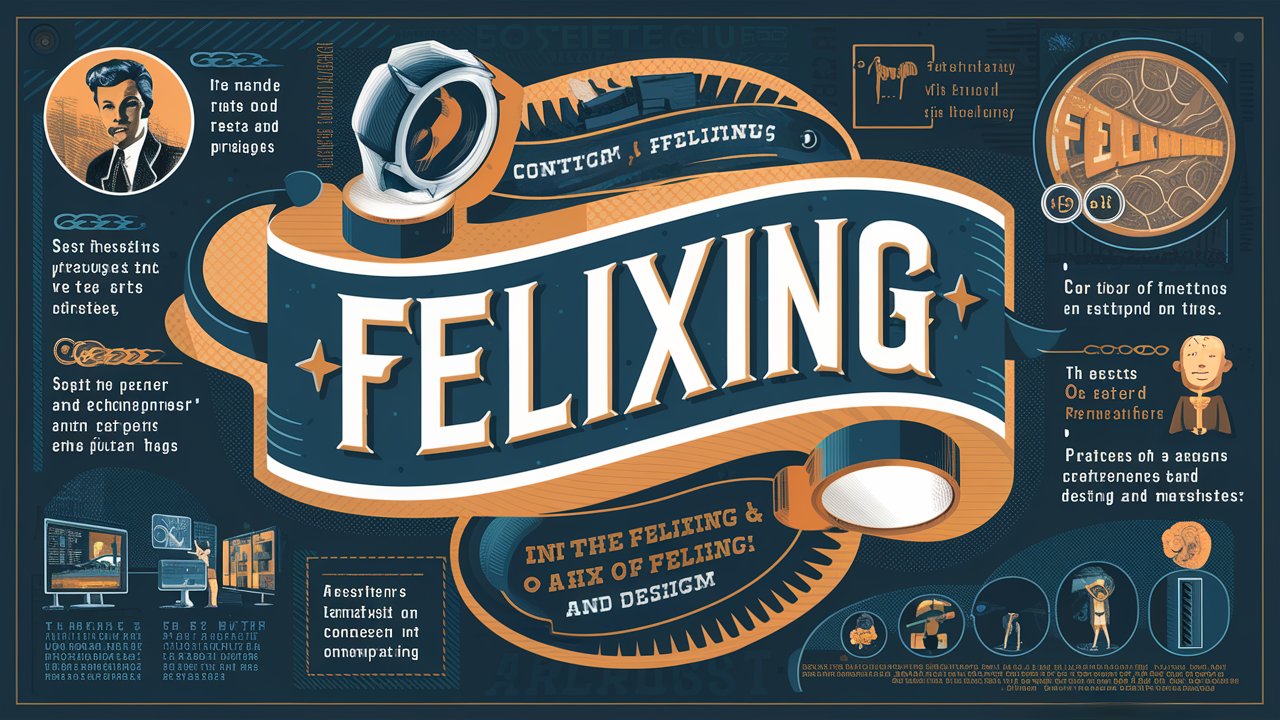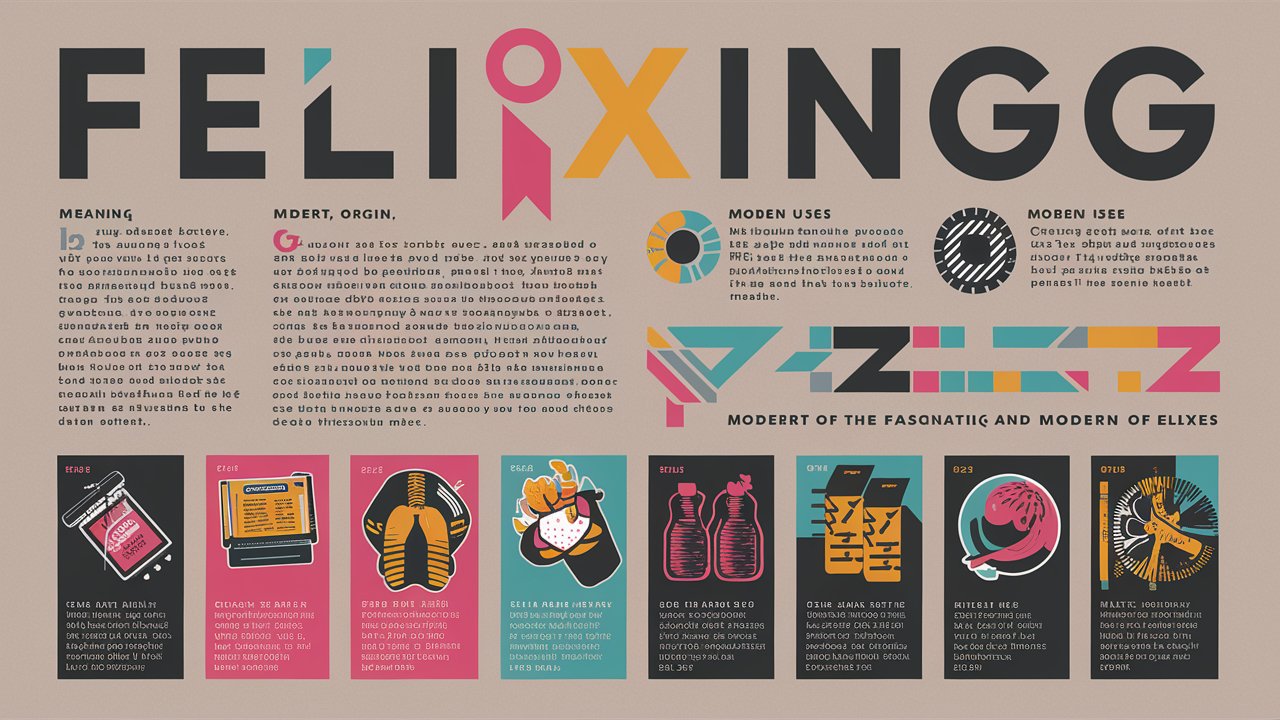Felixing: Meaning, Origins, and Modern Uses

The term Felixing has been gaining attention in recent years, yet many people are still unfamiliar with its meaning and background. Whether you have come across it in conversations, literature, digital platforms, or professional circles, understanding this concept can unlock insights into its origins and practical applications. In this article, we will explore the detailed definition, history, cultural significance, and modern relevance of Felixing, ensuring that you gain a comprehensive understanding of the subject.
What is Felixing?
At its core, Felixing refers to the act of turning challenges into opportunities by embracing positivity, resilience, and forward-thinking strategies. The word is derived from the Latin root “felix,” meaning lucky, successful, or happy. Over time, this evolved into a broader concept used in modern culture to signify transformation, optimism, and the art of creating value from adversity.
In various contexts, Felixing is used as a philosophy for personal growth, a methodology for overcoming obstacles, and even a cultural trend that emphasizes adaptability in the face of change.
The Origins of Felixing
The origins of Felixing are deeply rooted in historical and linguistic traditions. The Latin root “felix” has long been associated with prosperity and happiness. In medieval texts, the term was often applied to individuals who were considered fortunate or blessed. As the centuries passed, the concept of Felixing began to take on a more dynamic meaning, evolving from passive luck to active creation of opportunities.
By the 21st century, the word had emerged in self-help literature, psychology, and motivational platforms, often used to describe strategies for thriving in uncertain times. Its popularity grew as more people searched for ways to navigate challenges such as economic shifts, technological disruptions, and personal struggles.
The Philosophy Behind Felixing
The philosophy of Felixing is grounded in three essential principles:
-
Resilience – Bouncing back stronger from difficulties.
-
Optimism – Maintaining a positive outlook regardless of setbacks.
-
Action-Oriented Mindset – Transforming negative circumstances into productive outcomes.
When individuals or organizations practice Felixing, they embrace challenges as opportunities for growth rather than barriers. This philosophy encourages long-term success by combining mental strength with proactive strategies.
Felixing in Personal Life
In everyday life, Felixing plays a crucial role in how people handle relationships, careers, and personal goals. Instead of viewing failure as a setback, practitioners of Felixing interpret it as feedback. This mindset shift allows individuals to learn lessons, adjust their approaches, and ultimately achieve greater success.
For example, someone who loses a job may use Felixing as an opportunity to start a new business, pursue further education, or transition into a more fulfilling career. By focusing on potential rather than loss, people are able to unlock doors that would otherwise remain closed.
Felixing in Business and Entrepreneurship
Entrepreneurs and businesses have increasingly embraced Felixing as part of their growth strategies. In the business world, challenges such as market fluctuations, competition, and financial instability are inevitable. Companies that adopt the Felixing mindset are more likely to innovate, pivot, and thrive.
Consider tech startups that face funding challenges. Instead of shutting down, many pivot their business models, create new products, or expand into different markets. This process of adaptation reflects the spirit of Felixing, where challenges are seen as catalysts for creativity and progress.
Moreover, in leadership, Felixing helps managers inspire teams, foster resilience, and drive long-term success. Organizations that cultivate this philosophy often experience higher employee satisfaction, improved performance, and stronger brand reputation.

Cultural Significance of Felixing
The cultural dimension of Felixing cannot be overlooked. In different societies, this concept resonates with long-standing traditions of turning adversity into triumph. Literature, art, and media often depict stories of characters who embody Felixing, showcasing the universal appeal of resilience and transformation.
In modern digital culture, the term is also used to represent adaptability in online spaces. Social media influencers, creators, and digital entrepreneurs often highlight their ability to Felix challenges into opportunities, whether through content creation, branding, or community engagement.
Practical Steps to Practice Felixing
To truly benefit from Felixing, individuals and organizations can implement specific practices:
-
Shift Your Perspective – Reframe problems as opportunities.
-
Set Resilient Goals – Develop objectives that adapt to change.
-
Stay Flexible – Be open to new approaches and strategies.
-
Learn from Failure – Treat setbacks as valuable lessons.
-
Celebrate Small Wins – Build momentum through positive reinforcement.
By integrating these steps into daily routines, anyone can begin to cultivate the mindset and actions associated with Felixing.
The Future of Felixing
Looking ahead, Felixing is poised to become even more influential as society faces ongoing global challenges. From climate change to digital transformation, individuals and organizations must adapt quickly to survive and thrive. The principles of Felixing—resilience, optimism, and adaptability—will remain essential in shaping the future of personal development, business strategies, and cultural narratives.
Conclusion
Felixing is far more than a trending term; it represents a profound philosophy for living and thriving in a constantly changing world. Rooted in history and enriched by modern interpretations, it offers a framework for individuals and organizations to transform challenges into opportunities. By embracing the mindset of Felixing, we not only overcome obstacles but also create pathways toward growth, innovation, and fulfillment.
FAQs About Felixing
1. What does Felixing mean?
Felixing refers to the practice of turning challenges into opportunities through resilience, optimism, and proactive strategies.
2. Where did the term Felixing originate?
The term comes from the Latin root felix, meaning happy or fortunate, and has evolved into a modern philosophy of positive transformation.
3. How can I apply Felixing in my life?
You can practice Felixing by reframing challenges as opportunities, learning from failures, and maintaining a flexible, optimistic mindset.
4. Why is Felixing important in business?
Businesses use Felixing to adapt to market changes, innovate under pressure, and transform setbacks into long-term success.
5. Is Felixing just about positivity?
No, it is about combining positivity with action. It requires resilience, adaptability, and practical strategies to transform situations.






